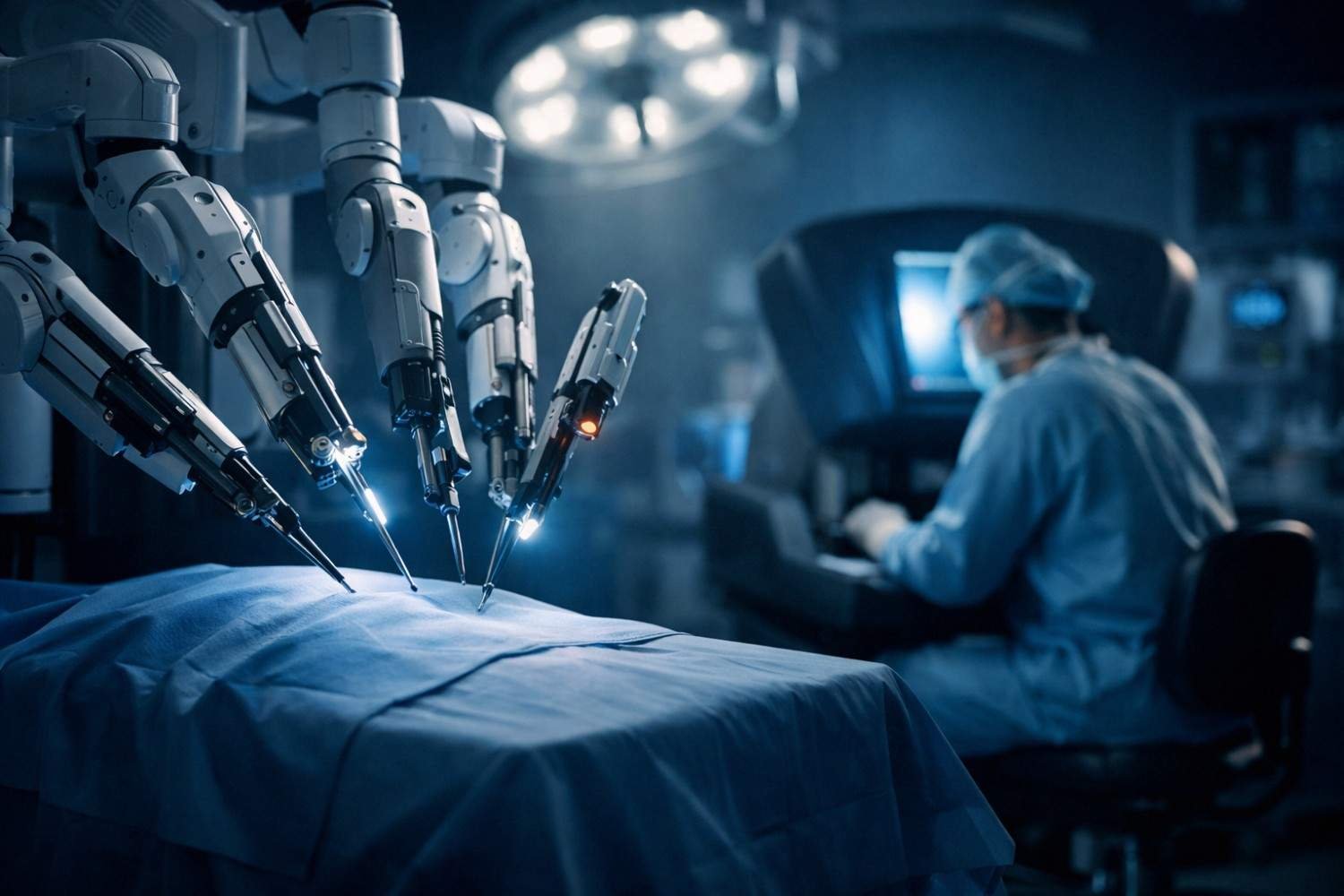

Lung Cancer In Men: Everything You Need To Know
Owing to the immense importance of your lungs, it is safe to say that your life depends on them. Lungs are integral organs of your respiratory system and help you breathe. Even a minor issue with your lungs should be taken seriously.
Lung cancer is a serious health complication affecting many males worldwide every year. Being more prone to smoking, men become easy victims of lung cancer, putting their lives at risk. Lung cancer is one of the most common types of cancer and can be fatal if not treated on time. If you or any of your loved ones experience lung-related issues, make sure you seek immediate medical care.
What Is Lung Cancer?
Lung cancer is cancer that develops in the tissue of your lungs. Most lung cancers start in the small air sacs or bronchi, spreading to other vital organs. Patients suffering from the problem need immediate Lung cancer treatment to stop cancer from spreading.
Lung cancer is a result of uncontrolled cell division in your lungs. While cell division is necessary to lead a healthy life, there is a limit to which your cells should divide. Mutations in your cells lead to uncontrolled cell division. When damaged cells multiply, they result in tumors that may spread to other parts of your body. When these tumors spread, they hamper your body's functionality, leading to dire implications.
Lung cancer may stay within your lungs or spread to other organs, making matters worse. If you fall victim to lung cancer, make sure you get treated by the best doctor in your city. For instance, if you are a Gurgaon resident, seek the best lung cancer treatment in Gurgaon without any delay.
Types Of Lung Cancer
Depending on the size of the cells dividing uncontrollably, there are two major types of lung cancer – non-small cell lung cancer and small cell lung cancer.
Non-small Cell Lung Cancer
This is the most common lung cancer type, affecting men all over the world. Non-small lung cancer includes multiple cancer types, including:
• Adenocarcinoma
• Squamous cell carcinoma
• Sarcomatoid carcinoma
• Adenosquamous carcinoma
Small Cell Lung Cancer
While this is not a common lung cancer type, small cell lung cancer is more difficult to treat as compared to non-small cell lung cancer. It grows more quickly, making cancer treatment tough. In most cases, the cancer is found in the form of a small tumor that has already spread to the patient’s other body parts. Common small-cell lung cancer types include small-cell carcinoma and combined small-cell carcinoma.
Other Lung Cancer Types
Apart from the two types discussed above, your lung can also become a target of other cancerous tumors arising within or outside your lungs. Some of these cancers include:
• Lymphoma – Cancer in your lymph nodes
• Pleural Mesothelioma – Cancer in your lungs’ lining
• Sarcoma – Cancer in your soft tissue or bones
Note that the cancer treatment for these cases differs from conventional lung cancer treatments.
Different Lung Cancer Stages
The different lung cancer stages are determined by the initial tumor’s size, how deep/far the tumor goes in the surrounding tissues and its spread to other organs close to the lungs.
Here is a glimpse of the generalized staging of lung cancer:
• Stage 0 – Also called in-situ, this is the stage when the cancer is still in the top lining of your lung. It still has not spread to other parts of your lung.
• Stage 1 – This is the stage where cancer has started spreading inside your lung but hasn’t spread outside of the organ.
• Stage 2 – This is the stage where cancer has become larger. Here, there may be more than one tumor in a single lobe of the lung, or cancer may have spread to the lymph nodes.
• Stage 3 – At this stage, cancer has spread to the lymph nodes near your lungs. This is also the stage where you may have more than one tumor in multiple lobes of the same lung.
• Stage 4 – This is the last lung cancer stage, where the tumor has spread to the second lung, the fluid around your heart, the fluid around your lungs, or other vital organs of your body.
The Difference Between Limited And Extensive Stage
Along with the stages discussed above, lung cancer is also described as being in a limited or extensive stage.
Limited-stage lung cancer is a condition where the tumor is limited to a single lung. Even if it has spread to the lymph nodes, the tumor remains on the same side of the lung.
On the other hand, extensive lung cancer is a condition where the tumor either spreads throughout one lung or reaches the other lung. This is also the stage where the tumor may spread to other parts of your body.
Metastatic Lung Cancer
Metastasis is a common term used for lung cancer cases. Simply put, metastatic lung cancer is the cancer that originates in one lung but spreads to the other lung (and/or the surrounding organs). Naturally, the cancer treatment for metastatic cancer is tougher than tackling a tumor that hasn’t spread much.
Major Symptoms Of Lung Cancer In Men
Some of the major lung cancer symptoms in men include:
• Developing a cough that doesn’t go away (or worsens over time)
• Shortness of breath
• Pain or discomfort in the chest
• A wheezing sound while breathing
• Coughing up blood
• A hoarse voice
• Loss of appetite
• Unexplained tiredness
• Unexplained weight loss
• Shoulder ache
• Swelling in the face, neck, upper chest, or arms
• Drooping eyelid in one eye
Understanding The First Signs Of Lung Cancer In Men
Chronic pneumonia or a cough that keeps returning are some of the most common early signs of lung cancer. Patients often discard these symptoms as something trivial until the complications get worse.
If you start experiencing symptoms like chest pain, shortness of breath, worsening cough, or unexplained weight loss, make sure you seek an oncologist in your city. If you are a Delhi resident, look for the best onco surgeon in Delhi for a thorough diagnosis.
Diagnosis Of Lung Cancer
If you feel even minor symptoms of lung cancer, make sure you visit your doctor for a comprehensive diagnosis. When you approach your doctor for the first time, they will ask you about your symptoms and their severity. They will also ask you about your medical history before recommending diagnostic tests.
Based on the initial assessment and physical examination, your doctor will recommend a screening test, such as an X-ray or a blood test. This will help the doctor confirm that you are facing lung cancer and nothing else.
If your doctor feels you may be suffering from lung cancer, they would further recommend imaging tests, such as a CT scan followed by a biopsy. You may also be asked to get a PET/CT scan done to see if cancer has spread to other organs.
Treatment Of Lung Cancer
All the diagnostic tests recommended by your doctor will help them confirm the presence of lung cancer. Depending on the stage of cancer, they will recommend suitable treatment procedures for your health complication.
Here are the different lung cancer treatment procedures used by oncologists to tackle your cancer:
Surgery
Surgery is a cancer treatment procedure ideal for cases wherein the cancer hasn’t spread enough. Here, the surgeon will remove your tumor and a small portion of the surrounding healthy tissue to prevent the cancer from spreading.
Radiofrequency Ablation
Radiofrequency ablation is often used to treat tumors present near the outer edges of the lungs. Here, medical professionals use high-energy radio waves to heat and destroy the cancerous cells.
Radiation Therapy
Radiation therapy is used by doctors to shrink tumors and relieve the patient from pain. Here, doctors use high-energy beams to kill the tumor or reduce its size. In many cases, radiation therapy is used to make surgery more effective.
Chemotherapy
Chemotherapy is often recommended to treat cancers in the later stages. It is a combination of several medications used to prevent cancer from spreading. Doctors may use chemotherapy before or after surgery to ensure better cancer treatment. Chemotherapy can also be used along with other procedures, such as immunotherapy.
Immunotherapy
It is common for our bodies to recognize damaged or harmful cells, promoting them to destroy them. Lung cancer often hides from the immune system, preventing its destruction. Through immunotherapy, doctors expose your lung cancer to your immune system, prompting it to fight the disease.
The Final Word
These were some of the most important aspects to consider regarding lung cancer in men. If you or anyone in your family experience any of the symptoms discussed above, seek immediate medical help to prevent the matter from getting worse. To tackle it effectively, it is important to understand how serious lung cancer is. Reach out to an experienced oncologist who is in tune with the latest technology while treating lung cancer.

18+ Yrs Exp | 5,700+ Thoracic & Robotic Cancer Surgeries
Dr. Parveen Yadav is a Director and Senior Consultant in Thoracic and Surgical Oncology, specializing in minimally invasive and robotic lung and esophageal surgeries, with advanced training from AIIMS and Tata Memorial Hospital.
View Full Profile Pain After Thoracic Surgery: Tips for Smooth Recovery
Pain After Thoracic Surgery: Tips for Smooth Recovery
 Diet & Lifestyle for Thoracic Cancer Prevention | Dr. Parveen Yadav
Diet & Lifestyle for Thoracic Cancer Prevention | Dr. Parveen Yadav
 Robotic Thoracic Surgery: How Da Vinci Technology is Revolutionizing Chest Procedures
Robotic Thoracic Surgery: How Da Vinci Technology is Revolutionizing Chest Procedures
Struggling with pain after chest surgery? Dr. Parveen Yadav shares expert recovery tips, causes of shoulder pain, PTPS signs, and what your discharge sheet won't tell you.
Discover how diet, breathing exercises & daily habits help prevent and recover from thoracic cancer. Expert insights from Dr. Parveen Yadav, Chest Surgery India
Discover how Da Vinci robotic surgery is transforming chest procedures in Gurgaon. Less pain, faster recovery & expert care by a certified thoracic surgeon
Copyright 2026 © Dr .Parveen Yadav all rights reserved.
Proudly Scaled by Public Media Solution!